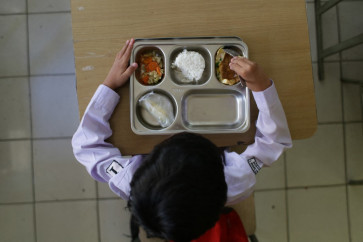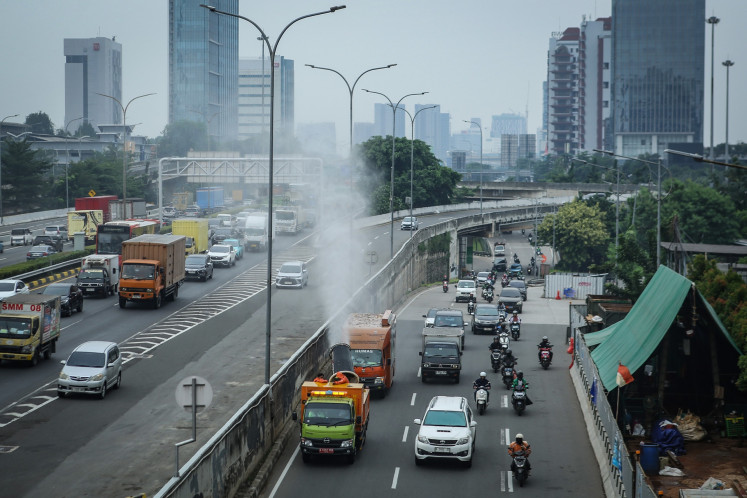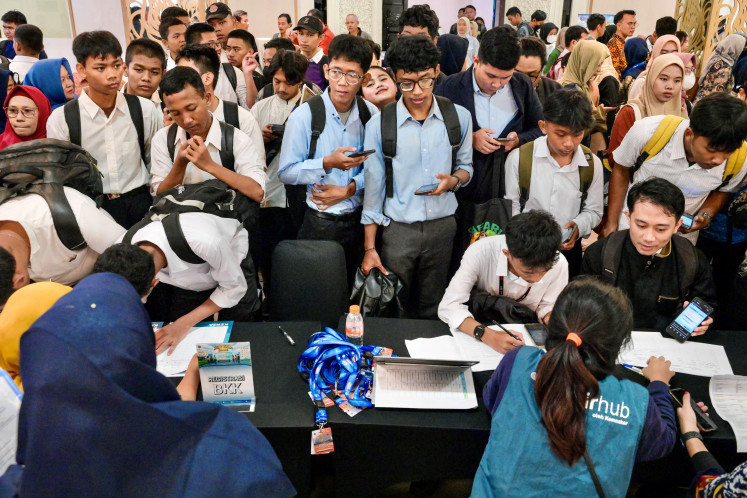Popular Reads
Top Results
Can't find what you're looking for?
View all search resultsPopular Reads
Top Results
Can't find what you're looking for?
View all search resultsGovt seeks MRAs to boost exports
The government says it wants to broker mutual recognition agreements (MRA) on horticulture so local exporters may have easier access to foreign markets
Change text size
Gift Premium Articles
to Anyone
T
he government says it wants to broker mutual recognition agreements (MRA) on horticulture so local exporters may have easier access to foreign markets.
In an exchange for easier access overseas, foreign exporters would receive similar treatment locally under the MRAs, Agriculture Minister Suswono said.
“Under the deal, we will demand that Indonesian [products] be allowed to enter partner countries more easily and we will benefit from this arrangement,” Suswono told The Jakarta Post on Thursday during an interview at his office in Jakarta.
Indonesia has had difficulties in exporting fruits and vegetables to other nations, especially developed nations.
Tropical fruits unique to Indonesia, including specific varieties of mangoes and mangosteens, only recently obtained permits to enter Australia due to stringent sanitary and phytosanitary standards in the country.
So far, Indonesia has signed MRAs with three nations – Australia, Canada and the US – which enjoy similar preferential treatment when exporting produce to Indonesia, particularly through the nation’s biggest import gateway, Tanjung Priok Port in North Jakarta.
The government of Thailand recently voiced its support for signing an MRA with Indonesia, according to Suswono.
Agriculture Ministry Quarantine Agency chief Banun Harpini said that the government would soon finalize an MRA with New Zealand, which processed the agreement almost two years ago.
Under an MRA, horticultural imports from signatory nations are exempt from full-check procedures, such as scrutiny per consignment and sampling for laboratory checks.
Under an Agriculture Minister regulation that came into force on Tuesday, horticultural imports can enter Indonesia at only four points: Soekarno-Hatta International Airport in Tangerang, Banten; Tanjung Perak Port in Surabaya, East Java; Belawan Port in Medan, North Sumatra; and Soekarno-Hatta Port in Makassar, South Sulawesi.
Tanjung Priok Port, which was previously one of eight authorized entry points before the regulation came into effect, has been excluded due to capacity overload that has led to poor supervision of imports.
State-owned port operator PT Pelindo II has plans to improve systems and infrastructure at Tanjung Priok, the nation’s busiest, to improve imports.
Contacted separately, National Horticulture Council secretary-general Karen Tambayong said on Friday that local businesses could not obtain the benefits envisioned by the government as local fruits and vegetables were not sufficient in terms of quantity and quality.
“It will be more beneficial for our partners, because they can access our huge domestic market. Local production is still low and, therefore, we cannot fulfill the required quotas of overseas buyers in addition to quality standards,” she told the Post over the telephone.
Poor production could be attributed in part to minimal support from the government and lack of investment in the horticultural sector, Karen said.
Indonesia, home to 240 million people, has seen its horticultural imports jump in recent years.
Imports of fruits climbed by 50 percent to 878,318 tons, while imports of vegetables rose by 29 percent to 746,857 tons last year.
China and Thailand were the nation’s largest suppliers of fruits and vegetables.










